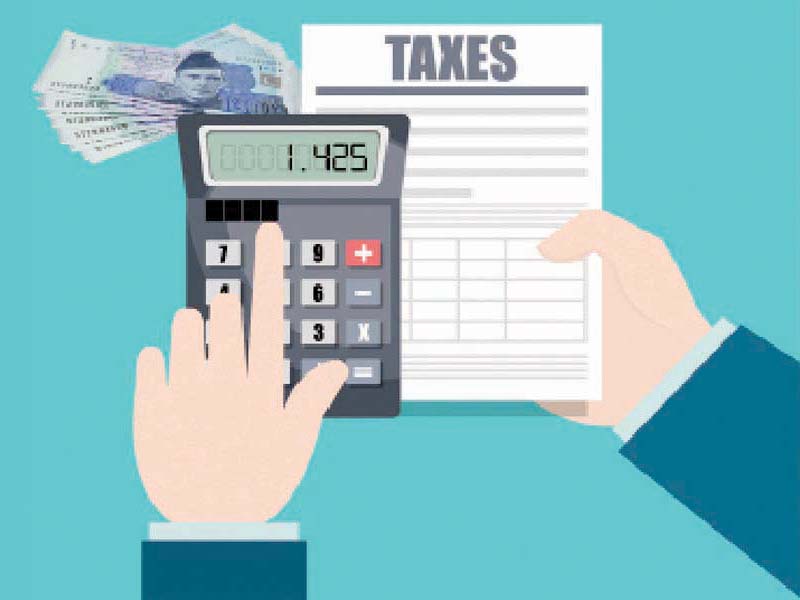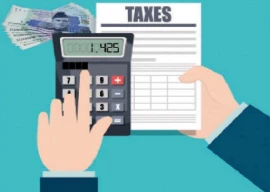
Amid a sharp rise in tax disputes that has put a question mark on Rs3 trillion potential revenues, the Federal Board of Revenue (FBR) has attempted to bring commissioners appeals under its control, which may further widen trust deficit between taxpayers and the taxmen.
Under the Income Tax Ordinance, the Commissioner Appeals is the first grievances redressal forum available to the taxpayers against the orders and tax assessments by the FBR. However, what appears to be interference in judicial process, the FBR has directed all Commissioners Appeals to report to the heads of regional and large tax offices, showed official documents. They commissioners of appeals have been asked to report their “performance” on monthly as well as quarterly basis, according to the documents. The law ensures their independence from the chief commissioners who head these offices to avoid conflict of interest. Commissioners Appeals are grade 20 officers of the FBR but they have been empowered under the law to work independently from the FBR’s Operations wing that is responsible for revenue collection. “All commissioners shall hold regular quarterly review meeting with relevant chief commissioners, LTO, MTO, CTOs, RTOs under intimation to legal wing to discuss number of orders annulled and reasons for annulment,” according to the directions issues by the FBR headquarter last month.
The Commissioners of Appeals will also have to justify and give reasons about “number of orders where substantial (tax) amount is deleted along with reasons for deletion and overall quality of orders-in-original by the office of Inland Revenue officer”.
The directions came after a sharp increase in tax assessment orders by the FBR against taxpayers and according to legal experts many of these orders lacked judicial grounds. FBR spokesman Dr Asad Tahir Jappa did not respond to questions about the legal base for making commissioners appeals subordinate of a chief commissioner.
These orders will compromise the quasi-judicial powers that are available to the commissioner appeals.
The FBR took the decision after the disputed tax amount sharply increased. The FBR data showed that the disputed tax amount stuck in litigation shot up over 70% in just eight months to over Rs3 trillion.
READ Traders cancel strike call after talks with FBR
At the end of December 2020, Rs1.8 trillion were stuck in litigation, which has now gone up to Rs3 trillion - an increase of Rs1.3 trillion in just eight months, according to the sources. Eight months ago, about 76,700 cases were under litigation from Commissioner Appeals to Supreme Court of Pakistan, which have increased to nearly 90,000, according to the figures.
About 60% of the disputed tax amount is pending before Commissioner Appeals, which is also a reason for bringing them under the FBR control, said the sources. There are roughly 23,000 cases pending before commissioner appeals, involving Rs1.8 trillion revenues - the highest amount pending before any forum. In just eight months, there was an increase of about 175% in the disputed taxes pending before the commissioner appeals. The FBR’s statistics showed that in the Appellate Tribunal, about 56,000 cases were pending involving another Rs631 billion revenues. In December last year, the Rs442 billion were under litigation before Appellate Tribunals, which have now increased by 43%.
The appellate tribunals comprised members from the FBR and the judiciary, which are notified by the Ministry of Law. In total, about 80% of the disputed amount or Rs2.5 trillion was pending either before commissioner appeals benches or appellate tribunal benches, which are being headed by FBR officers along with judicial members (at the appellate tribunal only).
About 8,500 cases were also pending before various high courts, involving Rs483 billion. There was reduction in pendency in cases before the high courts over the past eight months. There were nearly 2,300 pending cases before the Supreme Court of Pakistan having value of Rs72 billion. The cases pending before the apex courts have reduced by 18% since December.
Sources said that a significant amount of disputed tax liabilities was on account of tax demands raised against the sugar mills. However, they added that these orders by the taxmen had not been issued by following all legal formalities. They said that this was also one of the reasons that the Commissioners Appeals were facing pressures from FBR headquarter.
Published in The Express Tribune, September 28th, 2021.
Like Business on Facebook, follow @TribuneBiz on Twitter to stay informed and join in the conversation.


1732184775-0/BeFunky-collage-(80)1732184775-0-165x106.webp)

1731933289-0/BeFunky-collage-(68)1731933289-0-165x106.webp)

















COMMENTS (1)
Comments are moderated and generally will be posted if they are on-topic and not abusive.
For more information, please see our Comments FAQ